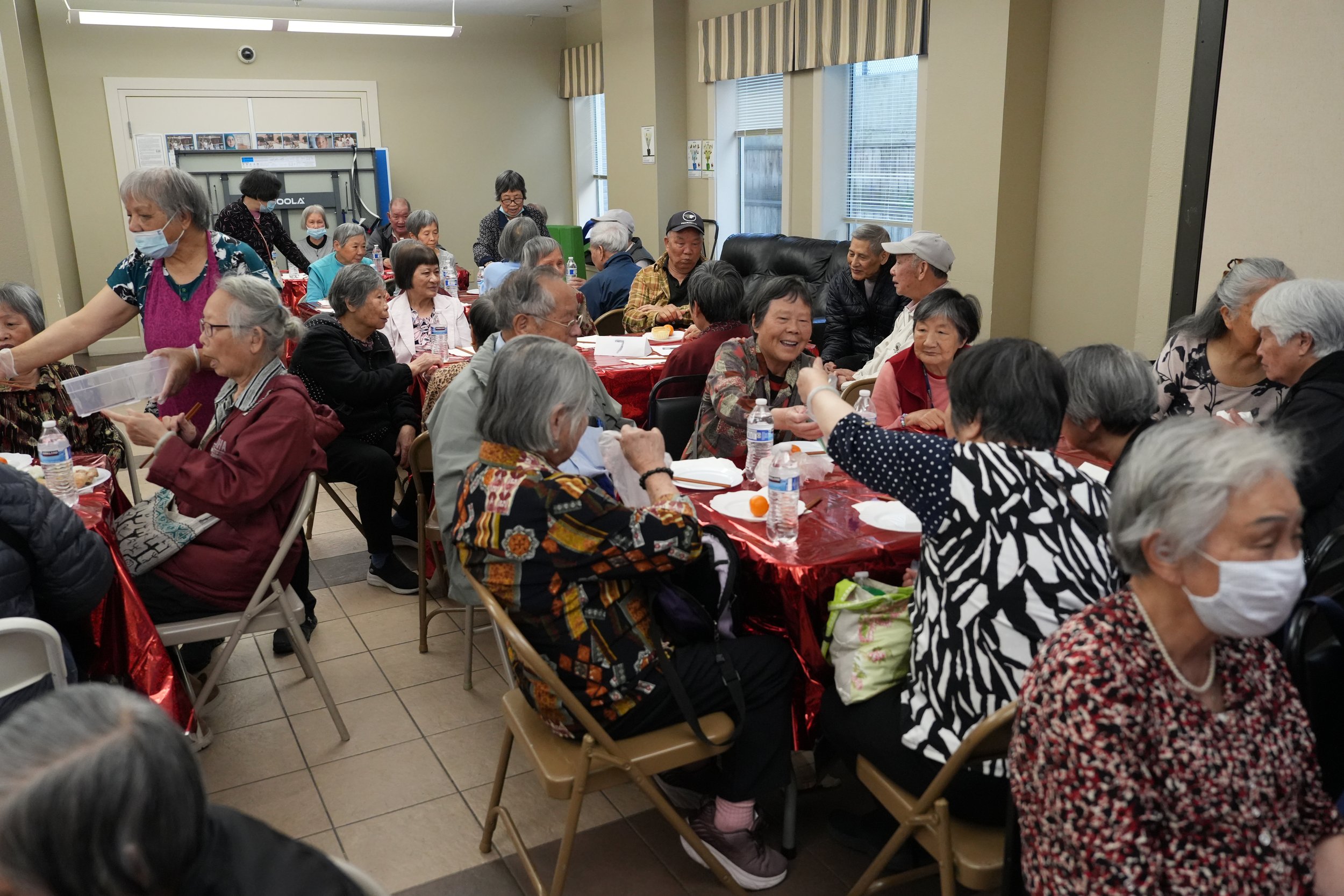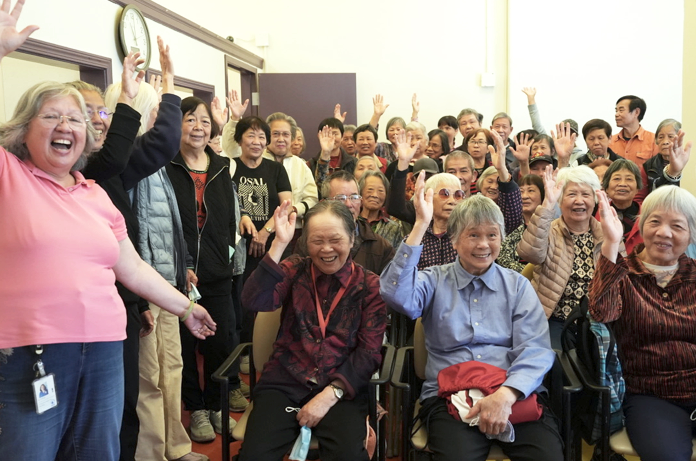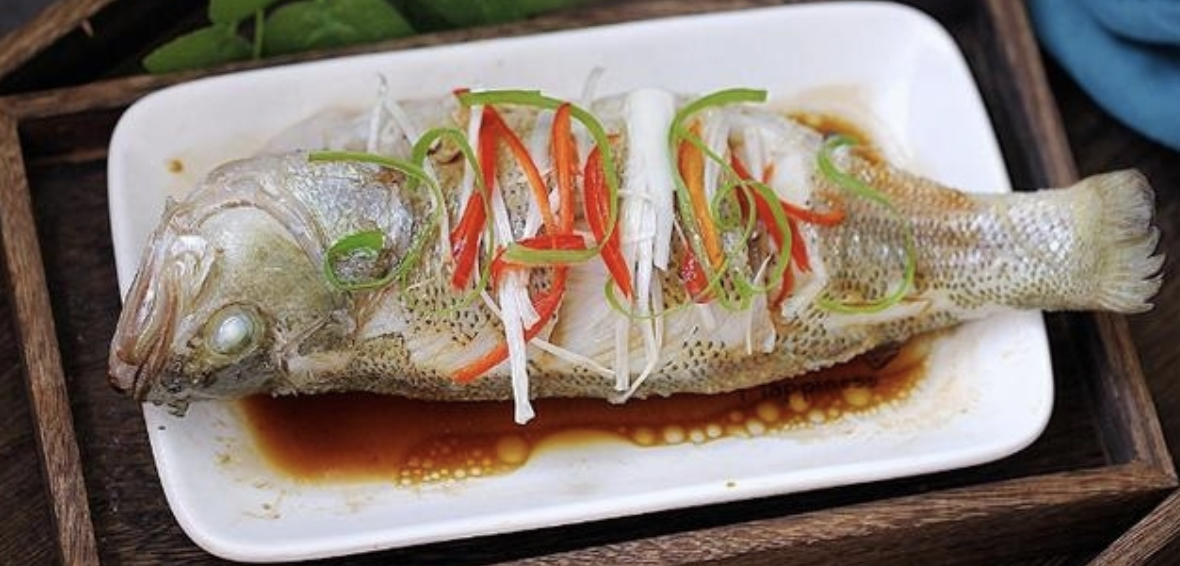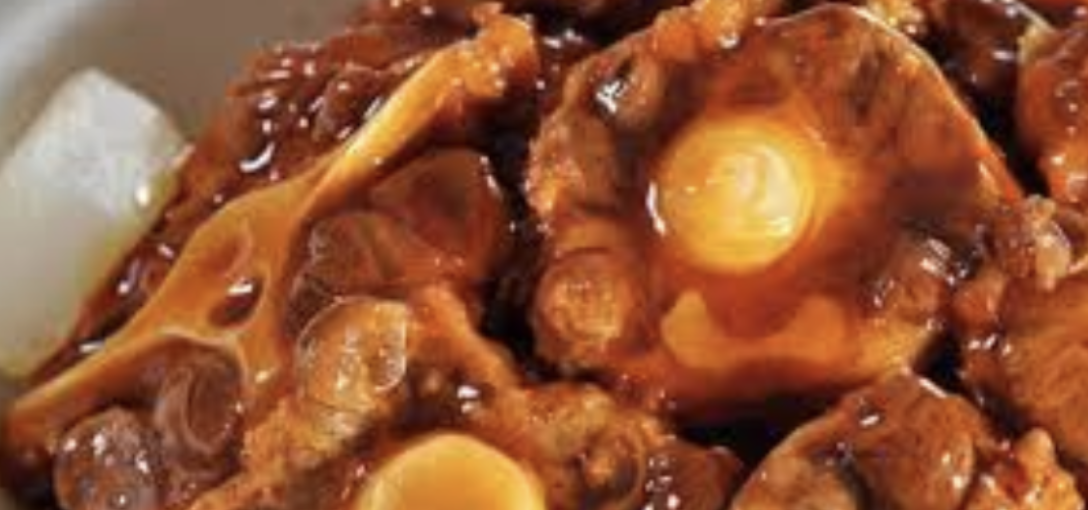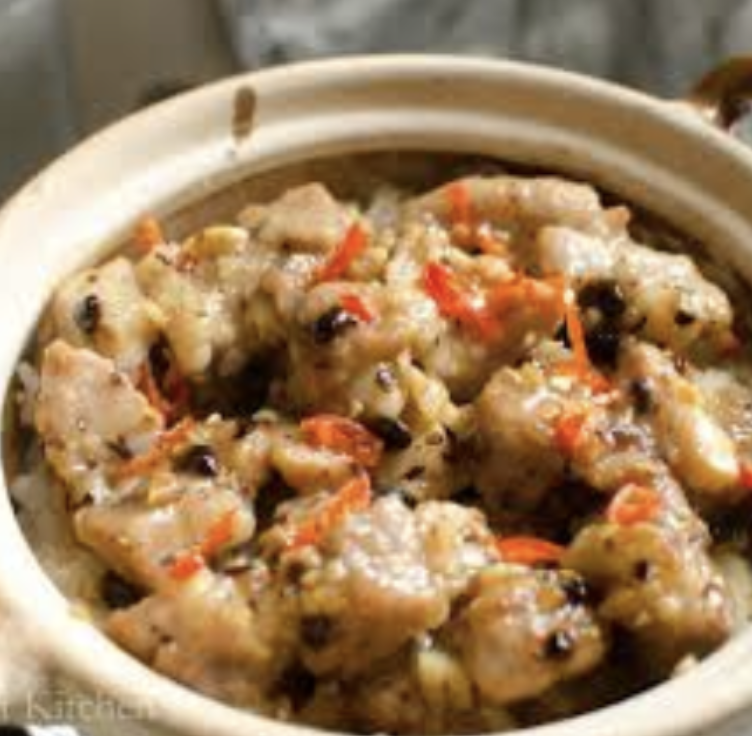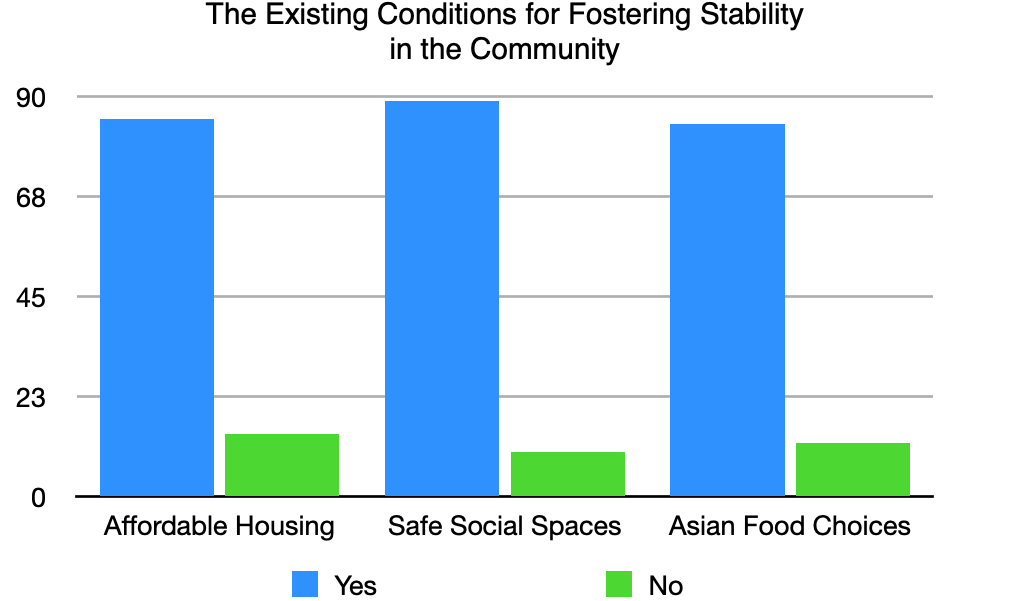The Mirror and The Lens
November 19, 2025
In early October 2025, Wildflowers Institute undertook production of a video to dive deeper into the importance of food in the Chinese culture and the initiation of a Flow Funding Circle in the Tenderloin. The discoveries Wildflowers made in the process were truly remarkable. The video, titled “Uniting at the Kitchen Table,” is linked below.
The Mirror: The idea of holding up a mirror to society is simply about revealing reality so people can see their strengths more clearly. In the making of this video, we filmed a group of community elders the institute had invited to work together in a circle as Flow Funders. In the video, we see them in several situations of everyday life that all revolve around food: shopping, cooking, and sharing a meal. Unselfconscious about their actions, the elders are shown going about their ways of being together. What the video mirrors is the underlying food culture and the rituals that innately guide these elders in their associations around food. Making visible this previously unseen asset, guides the elders in reflecting on the importance of food as the keeper of the culture in community sustainability.
Family Nights Together
The first community supper (Family Nights Together), provided by a new partnership with SF-based FOOD Friends, was the result of a group of community elders coming together to form a Flow Funding Circle.
Flow Funding was developed by Marion Weber as a way of giving direct gifts to community projects. Traditional forms of philanthropy use a top-down, outside-in approach to funding, but Flow Funding works from the bottom up, from within the community. In this case, the virtue and wisdom of the elders inspired three food-based programs rooted solely in the community’s ecosystem. The exponential synergy that will emerge from this effort is nothing short of 1 + 2 + 3 = 12. We imagine that the eventual pride felt by these elders will be substantial when they see their roles and their relationships reflect a power that is sustaining their community.
The Lens: When we think about looking at the world through a particular “lens,” it’s like applying a filter, framework, or perspective to help make sense of the world. The eight-minute video features interviews with Malcolm Yeung of the Chinatown Community Development Center, Todd Breyfogle of the Aspen Institute, Lisa Spinali of Lisa Spinali Consulting and Hanmin Liu of Wildflowers Institute. They each have their own lens, or perspective, on the narrative.
On the importance of gathering around food for cultural sustainability, Todd Breyfogle sees that, “…the opportunities of coming together around food, to share wisdom—to be in communion with one another—allows us to think critically and creatively about the challenges that we face.”
The story opens with a brief history of Chinese immigration to San Francisco, explores the importance of food as a central and unifying element in the Chinese culture, and highlights the power of community elders as effective activists. In the words of Malcolm Yeung, “Seniors are the most powerful activists … because where they are in life motivates them to seek and foster community.” As Todd Breyfogle notes on the discovery of elders as a motivated Flow Funding Circle, “This is ground-up theorizing, and then a conceptualization that allows the communities to flourish rather than a sense of bending the community in one direction or another.” And Lisa Spinali notes, “This community has a lot of assets, a lot of power. [As philanthropists] how do we help them help themselves.?” These insights further illuminate a core tenant of our process which is that discovering the unseen treasures in communities (and supporting them) strengthens their will and capacities.
Click on the image above to view “Uniting at the Kitchen Table.”
The metaphors of the mirror and the lens were not something we had consciously planned for at the outset of drafting this newsletter. Nor were they meant to provide a clever turn of phrase. They were inspired by what we’ve experienced. As we moved through the physical documentary process—planning, shooting, and completing the video—the stories mirrored back to us, analyzed through the lenses of respected collaborators, provided concrete insight into how our strategies are truly benefiting the communities we serve. In this case, a group of elders has spearheaded food-based initiatives that will go to the heart of strengthening individual and familial bonds within the Tenderloin’s Chinese community. And although this particular community is one small example, a “microcosm” as Todd Breyfogle points out, the methodology and impact of ground-up initiatives like this are transferable and scalable.
September 17, 2025
Migration to the United States is one of the most challenging experiences in one’s lifetime.
Many immigrants start over, even if they had successful careers back home. Economic pressure, discrimination, and cultural adjustment are only a few of the hurdles. Often the only source of comfort and stability can be found in uniting family members and in forming cultural cohorts among extended family and friends. And among the findings of our Tenderloin survey of 1,108 immigrants was that sharing a meal with either friends or family is essential for uniting.
However, the issue of food insecurity is disrupting this bonding among generations. Tariffs are increasing the cost of food, which has significantly increased in San Francisco compared with the cost of food at the peak of the COVID-19 pandemic. Food stamps are being severely reduced. These situations impact the ability of residents to gather in familiar cultural and traditional settings around food.
As described in our previous newsletters, the Flow Funding Circle of eleven elders (Radiant Lights of the Setting Sun) proposes the following three projects to address food insufficiency:
Farm to Kitchen Table
To reduce the cost of food for local residents, products from organic farmers and fishermen will be available to Tenderloin residents at wholesale cost on a weekly basis. We are identifying farmers and resource people to join us in this endeavor. And we are building a group of volunteers to support this work.
Family Nights Together
On the first Friday of the month, residents, loved ones, and companions will be invited to a community supper where they will explore solutions to the challenges they are facing. After supper, guests will prioritize problems and discuss practical measures and humanistic solutions—the things that are not quantifiable but sustain relationships and make life worth living.
From My Heart Cooking Club
A regional cooking club will bring together the Asian population in the neighborhood. As noted in an earlier newsletter, grandmothers are compiling recipes and stories to be passed down to the next generation. The collection of recipes will be published in their native language and in English. The coming together around recipes offers yet another way for residents to fortify existing ties and form new friendships that enhance and widen their support system.
A Force for Good Exists: It’s Time to Build
Eighty-seven percent of the Tenderloin residents feel their neighbors protect and safeguard one another. More than 900 respondents indicated their willingness to help us identify how food factors in culturally, and we are learning more about what makes their life more meaningful and productive. And at community focus group meetings, the overwhelming majority of the participants indicated their willingness to volunteer and help us realize proposed solutions to food insecurity.
See the photo below of community elders sharing the cultural meaning of the food dishes they prepared.
What we highlighted above is Wildflowers Institute’s initial strategy to addressing food insecurity in the Tenderloin. First, we must build on the momentum to help while healing and strengthening ties in the community. Through these food-based initiatives, we encourage the extended family to draw from its personal history and cultural tradition while adapting to new resources, conditions, and situations in America. We will shine a light on positive and productive energy that brings family and friends—the “super” clan—together around the kitchen table.
Wildflowers Institute’s focus is to sustain change in the Tenderloin’s immigrant community. By partnering with local residents and aligning small grants to support projects, such as those mentioned above, we’re reinforcing purpose and shared meaning in life that drive the innate energy therein. This approach to more targeted funding at the grassroots level is known as “Flow Funding.”
Thirty-three years ago, the Flow Fund pioneered direct giving in concert with how local change making happens. The Fund identifies trusted individuals who have come to know their true purpose in service to others. They work and learn together in a circle and on the ground in a community and are the emissaries of philanthropic endeavors. Jessika Greendeer, a Ho-Chunk Nation tribal member from Baraboo, Wisconsin, and a member of the Deer Clan, was a member of a Flow Funding circle. As a seed keeper and farm manager, Jessika identified a couple growing and preparing indigenous foods for their community on the Oneida Reservation in Wisconsin and for other Native communities.
As Jessika noted in her report: “I was completely blown away by how this couple used past funds to complete their commercial kitchen, and they are working on a drive-thru market which will sell products from their farm and the gardens/farms of Native producers in the area. . . . The work they do is a labor of love to bring back our foods and get seeds back into the hands of community members. The humility of this family continues to amaze me, and I am grateful to know there are people like them who live like our ancestors, welcoming people to their home to learn to grow, make ancestral tools, prepare ancestral foods, rebuild at indigenous ecosystem, and feed the people again.”
7/23/25
Discovery Leads to Momentum
We are very excited to announce that our discovery strategy is working in transforming philanthropy for community sustainability for all! As we gain momentum, donors, funders, and leaders of foundations have been following our “discoveries” and supporting our community projects. Most recently, Metta Fund in San Francisco gave Wildflowers Institute a grant to support Chinese elders in their polling of residents in the Tenderloin. In addition, we have realized an increase in funding this year, including that from a noted public speaker, a prominent author of systems thinking and organizational learning, and a colleague of Peter Senge at the Massachusetts Institute of Technology. Twelve additional philanthropists from international and community foundations are supporting our work. Friends at the Aspen Institute continue to be seminal contributors to the direction we are taking, including Aspen’s Senior Advisor for Humanistic Studies, Todd Breyfogle, who this week has contributed an essay aligned with our approach entitled “Philanthropy and the Wisdom of Hospitality.”
Alongside eleven “Radiant Lights” elders, we are creating a bridge between the community’s natural forces for good and those of philanthropy. While traditional foundations fund nonprofits based on specific theories of change, Wildflowers Institute takes a different path—directly supporting individuals driving diverse, grassroots efforts. This approach supports those on the ground level and is rooted in a study of Flow Funding Circle reports (1992–2022) at the Rockefeller Archive Center. Flow Funding is an innovative approach to empower all people through small gifts and to democratize the practice of philanthropy. Our findings show that this model efficiently leverages community ecosystems, culture, and organizing to deliver fast, cost-effective impact.
We believe that the forces for good in a community arise from people giving of themselves to others. Across all cultures and identities, a shared ethic endures—shaped by lived experience and passed down through generations. One pertinent example of this is Aristotle’s description of friendship of the good in his Nicomachean Ethics (circa 350 BCE):
Friendship . . . stimulates to noble actions . . . “two going together” . . . for with friends men are more able both to think and to act . . . to be friends, then, they must be mutually recognized as bearing goodwill and wishing well to each other . . .
Our Tenderloin studies have pinpointed the family meal at the kitchen table as a spiritual communion uniting differences. Around the kitchen table, family members gather after long, challenging days to share a lovingly prepared, affordable meal. The beauty of these moments is the care that is shown for one another by sharing food, stories, and wisdom across generations. The table also remains open, welcoming guests from all walks of life as part of the family’s daily communion.
At a recent focus-group session at Antonia Manor, we witnessed the collective will and the extraordinary determination of residents to respond to the food crisis impacting them. The photo below shows the residents raising their hands to volunteer and participate in the From My Heart Project, a threefold approach to strengthening relationships through meals at the kitchen table.
Our strategy of discovering community-based solutions is succeeding. Tenderloin elders are being guided by their moral compass, and communion at the kitchen table is receiving strong endorsement from residents. This approach relies on local leadership and resident insight to uncover what truly empowers the community. By tapping into local knowledge, we create a synergy between philanthropy and grassroots energy that strengthens the neighborhood’s moral courage and spiritual intelligence.
7/1/25
Wildflowers Institute Addresses Food Insecurity in the Tenderloin
Following our survey of over 1,000 Chinese elders, Wildflowers Institute’s focus is now on using the data to enhance relationships within extended families, social circles, neighborhoods, and spiritual communities, aiming to improve their overall effectiveness and connection. These relationships are primarily what makes life worth living for residents in San Francisco’s Tenderloin. In addition, the California Department of Social Services has proposed eliminating funding for certain CalFresh initiatives, such as the CalFresh Minimum Nutrition Benefit Pilot program and the Work Incentive Nutritional Supplement (WINS) Program, starting in the 2025–26 fiscal year. These proposed cuts are affecting the level of assistance available to CalFresh recipients in San Francisco. Moreover, the Tenderloin neighborhood lacks a full-service grocery store, making access to affordable, culturally appropriate, and nutritious food difficult for its 30,000 residents, including 3,500 children.
At the beginning of 2025, Wildflowers Institute started training a group of eleven elders known locally as the Radiant Lights of the Setting Suns in our process to make visible the hidden treasures of their community, and to apply these resources to solving problems in their community. The Radiant Lights are deeply concerned about food insecurity among families and in the neighborhood overall. In response to the crisis, the group plans to reduce the cost for fresh Asian produce, meats, seafood, and rice by organizing an association that brings food directly from farms and the sea to the kitchen table. Their overall goal is to contribute to deepening the love in the family and among neighbors while making fresh food more affordable and delicious.
The grandmothers come from diverse backgrounds and have been working side by side, solving problems, learning from one another, and sharing experiences, thus heightening their vitality and creativity. Together, we have been exploring how to strengthen the family and the community during times of duress. And what we’ve landed on is the customary practice of planning and cooking family meals as an expression of supreme acts of love. The elders shared with us the immense joy they feel when they see their children and grandchildren feast delightfully on the dishes they make.
Steamed Fish
Braised Fish Belly with Tofu
Braised Oxtail
Steamed Spareribs
Entitled From My Heart, the project entails a threefold approach. First, the elders are documenting and organizing traditional food recipes from different regions and provinces in China passed down from generation to generation. The elders are reaching out to grandmothers and grandfathers in twelve residential buildings to identify family recipes and resource people who love cooking and are competent in the kitchen. Second, the collection of legacy recipes will be compiled into a book to be published in Chinese and English and shared widely. The book of recipes will be a tool for others to use to expand their cooking portfolio. Third, the elders will raise additional funds by making affordable and delicious meals based on traditional family recipes in pop-ups at local restaurants and communal kitchens.
With the assistance of Wildflowers Institute, the Radiant Lights are building on the tried-and-true tradition of integrating family and food. They are leveraging what already works. The Radiant Lights and their project, From My Heart, are hidden gems of the Tenderloin.
Wildflowers Institute’s Discovery Archive
Turning Data into Action 5/14/25
Following our survey of over 1,000 Chinese elders, Wildflowers Institute’s focus is now on using the data to enhance relationships within extended families, social circles, neighborhoods, and spiritual communities, aiming to improve their overall effectiveness and connection. These relationships are primarily what makes life worth living for residents in San Francisco’s Tenderloin. The chart below summarizes the main challenges residents face.
This community enhancement will come through identifying and funding projects using the Dao Fund.The Dao Fund helps Tenderloin residents navigate change by strengthening families and community ties, offering small grants to support collective healing, growth, and problem-solving.
Accordingly, we’ll seek to identify a wide range of local talent and support social and cultural activities that unite others around common interests. As a start, we’re inviting residents to share with us their talents in storytelling, cooking, dancing, singing, visual arts, calligraphy, poetry, healing, and many other joyful activities that open the heart and bring everyone together.
Specifically, we are looking to promote projects that:
Protect and safeguard one another;
Help solve difficult problems; and
Enable residents to further heal and grow.
We will be holding community workshops with residents in May and June 2025 to focus on the three community-driven projects mentioned above. The results of the workshops in 12 buildings will be compiling a list of 6 or 7 community-driven solutions.
In August or September 2025, Wildflowers will invite over 1,000 survey respondents to a community meeting(s) where we will announce the community projects and hold a vote on which projects will receive funding.
Wildflowers Institute’s Latest Discoveries
From the Inside Out 4/2/25
Our community engagement efforts have led to an unexpected outcome: bringing together previously disconnected groups of Chinese elders. This has further illuminated the reality that the Tenderloin has a very different look and feel from the inside out. These newly formed cohorts are helping to build a wider network, offering valuable insight into the thoughts and needs of the community. This, in turn, gives us a clearer lens through which to identify and support activities that foster stronger relationships within the community.
Our analysis of just under 770 surveys and focus group discussions with local residents highlights what make this neighborhood a sanctuary for residents, many of whom are of Chinese ancestry. The surveys reveal that 96 percent of the respondents are comfortable living in housing at facilities such as the Tenderloin Neighborhood Development Corporation. Eighty-three percent of survey respondents hailed Father Alfred E. Boeddeker Park located in the heart of the neighborhood as one of their primary gathering places. And 84 percent of the respondents buy their groceries in the neighborhood. Affordable housing, safe spaces in residential housing and in the park, and access to local produce are conditions that foster individual protection and family stability. See the graph below summarizing these community findings:
What also captured our attention was the fact that over 71 percent of the respondents, whose median age is 76, live either alone or with their spouse. And just over 90 percent indicated that they have harmonious relationships with family members, friends, neighbors, and spiritual leaders. These support groups are helping them to solve problems, heal, and grow. We know that the quality of relationships is one of the main predictors of longevity and happiness. (See The Good Life: Lessons from the World’s Longest Scientific Study of Happiness by Robert Waldinger, director of the Harvard Study of Adult Development at Massachusetts General Hospital, and Marc Schulz, associate director of the HSAD.) And we are now identifying the respondents’ guidelines for building productive and enabling relationships. The following beliefs and values come from focus group sessions with elders in the Tenderloin, who summarized what guide them in building quality relationships with others:
Strive for harmony and unity amid diversity.
Guard and protect each other.
Respect the elders and love the young.
Gain deeper understanding of others who are different from you.
Be active and flexible in seeking out solutions to problems and challenges.
Create art that heals others.
Give a helping hand to your neighbors.
In April and May 2025, we will be convening meetings at residence facilities in the Tenderloin to hear their thoughts and recommendations regarding community-driven activities that will strengthen relationships within the family and among community members. Through these meetings, we will identify activities to receive potential funding for fortifying this sanctuary in the Tenderloin. We will report back to you on what they suggest.
Wildflowers Institute’s January Survey Already Shedding Light - 3/10/25
Step one of our five-step discovery process begins with community-driven surveys to ground us in the reality of the community. This is our way of learning about the community’s challenges, its approaches to solving problems and its ways of adapting.
Community organizers Siu Han Cheung and Tammy Huynh, the Tenderloin Neighborhood Development Corporation (TNDC), and a group of eleven Chinese elders collectively known as the Radiant Lights of the Setting Suns are conducting a survey of tenants in residential occupancy dwellings. The Radiant Lights plan to carry out 800 surveys and, to date, they have received more than 650 completed surveys. Nearly all the questions have been answered. (See photo above, right of the Radiant Lights at one of our training sessions.)
Our review of the survey data illuminates the structure of the family and community as a sanctuary—an unseen treasure of the Chinese community in the Tenderloin:
87% of the respondents feel that the residents in their neighborhood generally protect and safeguard them and others.
86% of the respondents report having a social space to gather and keep fit with friends and neighbors.
69% of the respondents have created a “spiritual refuge” for their families within the neighborhood.
Over 91% of the respondents are receiving support and experiencing healing and personal growth through the assistance of extended-family members, spiritual leaders, and friends.
However, the data also highlights challenges in family and community structures: 51% of the tenants live alone, 28% with a spouse, and 15% with one or more children. The intergenerational family structure is breaking down, with a significant number of elderly individuals living alone and no longer providing care for their children and grandchildren. This shift results in a widening of the generational gap and a disconnect from a primary source of Chinese history and culture for younger generations. And although 87% of the respondents describe their families and/or community members as working harmoniously together, about half of this group indicated a need for assistance in problem-solving beyond the extended family. Without access to expertise and technology resources, the solutions they choose may hinder their ability to adapt and thrive effectively. The survey also brings to light an erosion in the ethos of the community: 3% of neighbors experience a helping hand—a gift gesture—every day that they did not ask for or expect and only 22% experience an unanticipated gift once a week.
Our next step is to convene meetings of survey respondents to share and discuss these challenges and to develop community-driven solutions to them. We will be exploring how the activities that form their sanctuary can be further strengthened.
We are committed to preserving the inherent assets of the community. In the contemporary era, the challenges of community building in the United States and globally compel us to fortify the structures that significantly impact the lives of residents, particularly immigrant families at the grassroots level. Our approach commences with the social and cultural fabric of the community—naming and asserting an ethos that governs the organization of family and community life, integrates with political and legal systems, and contributes to the economy. * By bringing these resources to light, the community will be guided by its own narrative of how it is sustaining change. This is the rationale behind the establishment of the Dao Project: to empower the very core of the community through a process of discovering its unseen treasures.
We will keep you informed about the final analysis of the surveys and the community-driven solutions that emerge to address the challenges set forth in the study.
*See What We Owe Each Other, Minouche Shafik, Princeton University Press, 2021.
